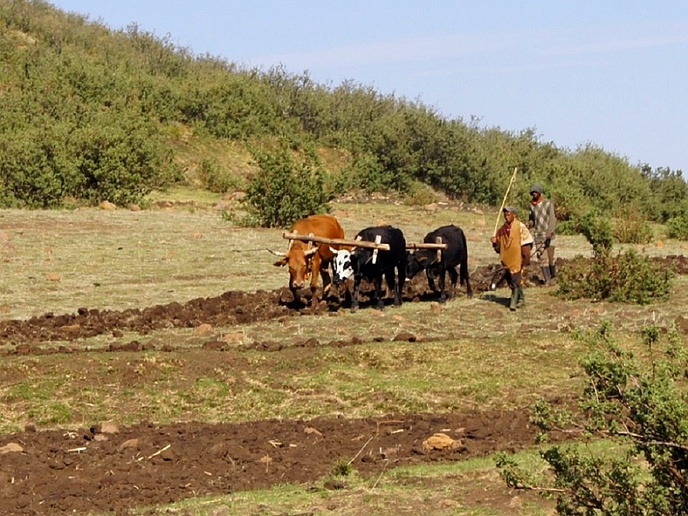THIS week we are carrying one of the saddest stories about how Lesotho mineworkers in South Africa are losing jobs due to automation.
comments
June 3, 2022
EDITOR
3 min read
SA mining automation, a two-edged sword

Story highlights
Actually, this is a global problem as companies increase capital intensity in production. South Africa, Lesotho’s only neighbour where most Basotho are also headed to eke out a living, is no exception.
These days, machines and other capital equipment in production processes such as mining are replacing labour. But the question is: Is there anything Lesotho authorities could have done in advance to contain the problem of job losses in the South African mines?
If the South African mines were such an important source of income to the lives of many Lesotho households, the authorities should have foreseen the impact automation would have in replacing foreign labour in this sector. Economic planning and labour departments should have been in a position to make projections about where the economy and labour should be headed as determined by economic conditions, demographic trends, social, moral and cultural values as well as psychological attitudes.
At least, they should by now know what the effective supply of labour is, not only in Lesotho, but South African migrant labour market, which many Basotho depend on. While automation in the mining sector is a two-edged sword, improving production on the one hand and cutting jobs on the other, Lesotho authorities should have been prepared for the repercussions of advancements in technology.
Nowhere is the quality of Lesotho migrant labour important than the South African mines, where authorities should have taken responsibility to empower Basotho migrant mineworkers through education, training, ability, experience, to minimise job losses.
Yet, Lesotho still has another source of income in South Africa’s informal sector, which employs thousands of Lesotho nationals. This sector may be unattractive to an average individual but it is certainly relevant to a discerning person concerned with Lesotho’s high unemployment rate and economic performance in general.
If anything, Statistics South Africa should be taken as seriously as the Lesotho Bureau of Statistics for periodical economic indicators such as unemployment and labour force participation for proper economic planning.
Enjoy our daily newsletter from today
Access exclusive newsletters, along with previews of new media releases.
The link between Lesotho and South Africa’s labour and employment cannot be ignored but to what degree can local authorities respond to their changes? As much as Lesotho authorities should have taken Basotho formal employment in the South African mines seriously, they should regard the big neighbour’s informal sector equally important.
If it were not for South Africa’s informal sector, which employs taxi operators, hustlers, shebeeners, hawkers, dagga smugglers, nannies, robbers, prostitutes and traditional healers, Lesotho would be worse off.
This shadow or unrecorded economy is putting bread on the table for many families in Lesotho. As economic growth is headed for the worst locally and elsewhere, increasing attention must be paid to South Africa’s informal sector as an additional source of income and employment.
So far, no policymaker seems to have answers to a stagnating and declining Lesotho economy. No political manifesto gives hope to stimulating formal economic activity.
Tailored for you






